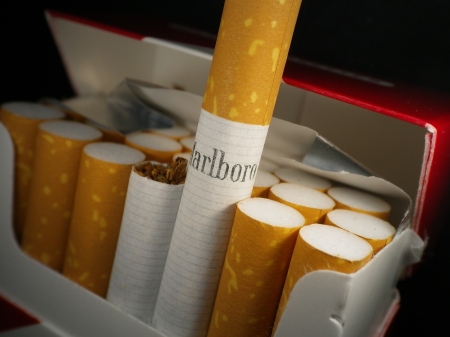
HB321, a bill to establish medical marijuana dispensaries, will be heard by the Senate Committees on Health and Public Safety this Friday afternoon. Talking points for testimony can be found in this previous post.
Big Tobacco’s Playbook
From Horns of Jericho Blog, March 18, 2015
Tactics used by marijuana advocates show that they are working from the same playbook as big tobacco companies. Findings by the author (Linda Haynes-Maslow, food systems & health analyst) of a recent post on the Union of Concerned Scientists blog “The Equation” outline the campaign used by big tobacco to keep the American public snowed. An extension of those arguments becomes enlightening when it is applied to both obesity (per the author’s discussion) and to marijuana (below).
While you are encouraged to read the post in its entirety, Haynes-Maslow summarizes her points as follows:
My past research on the tobacco industry’s framing of arguments revealed that they focused on promoting individual choice and personal responsibility, inciting fear of big government (think “nanny state”), threatening economic insecurity, and accusing public health scientists of manipulating data about the consequences of smoking.
Borrowing Haynes-Maslow’s four points, observers of the marijuana debate in Hawaii see the same exact tactics being used by liberal Democrats (Libertarians as well) and other marijuana advocates:
Individual choice and personal responsibility: Advocates attempt to paint marijuana use as a “victimless crime”, and that the only person being harmed is the person making the choice. They fail to acknowledge that impaired brain development adolescents and young adults (up to age twenty-five) impairs socioeconomic opportunity later in life. This is not to suggest that all marijuana addicts will become burdens on the welfare state, but that impaired brain development can severely hamstring getting a job, maintaining stable employment or even properly raising a family.
Fear of big government: Libertarians (in short) believe that individuals should be free to do as they choose, so long as no one else is harmed. Government, however, has a proven interest in public health – and exercises that interest frequently in the establishment of laws. This is also why smoking cessation programs are a government-funded activity – here in Hawaii you can get everything you need to quit smoking for free.
The effects of smoking (tobacco or marijuana) are well-established, and generally speaking, the individuals afflicted by smoking-related medical conditions are most frequently the ones who cannot cope with the costs of treatment and recovery. This is how a single person’s individual choice becomes a burden on the welfare state and society as a whole. Whether through enhanced health insurance premiums or through emergency room visits by the uninsured, one person’s marijuana choice becomes a burden on everyone.
Economic security: This argument takes the form of the “costs” associated with marijuana enforcement. Citing that marijuana laws are too expensive to enforce, advocates believe that we should legalize marijuana to save money. This “imaginary savings” has been debunked both by previous posts made within this blog, and by law enforcement agencies across the board.
Misinformation: Advocates frequently reference comments by notable figures to give marijuana the image that it is “normal” or that it is “safe”. Most notably, Barack Obama famously quipped that he thought alcohol was more dangerous than marijuana. It seems strange that marijuana advocates would turn to a former professor of constitutional law for medical advice. Do they also ask for financial advice from Kim Kardashian or nutritional advice from soft drink companies? Had they actually consulted a medical professional on the health effects of marijuana, they would have told you about the patients that enter emergency rooms in chemical shock from marijuana overdoses. The medical facts hurt the arguments made by marijuana advocates, and they are going great lengths to ensure you do not learn them.
Rather than turning to the best science and available medical facts, advocates in Hawaii have doubled down on the “imaginary savings” that marijuana decriminalization or legalization would make in the State. This savings would be similar to the “imaginary savings” incurred by relaxed enforcement of crystal methamphetamine or prostitution laws.
When compared against the template of big tobacco companies, it makes you wonder which team marijuana advocates are really playing for.
---30---